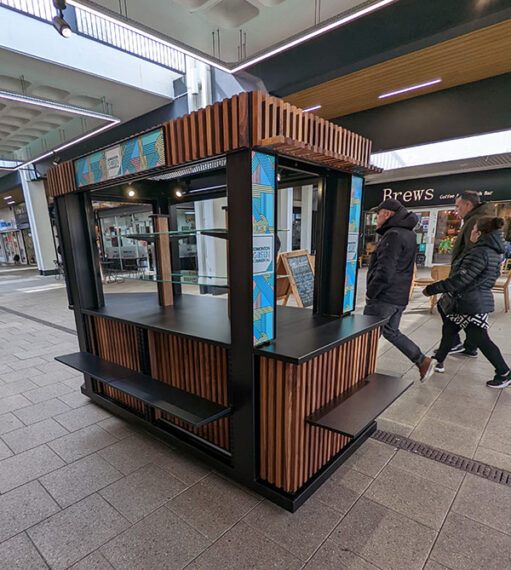A portable retail kiosk is a self-contained retail unit that is designed to be easily transported and set up in different locations. It is typically a small structure that is lightweight, durable, and equipped with everything needed to conduct retail transactions, such as display shelves, a cash register, and signage.
Portable retail kiosks are becoming increasingly popular among retailers who want to take their products and services directly to their target customers, rather than waiting for customers to come to them. They are commonly used in outdoor markets, fairs, festivals, and other events where foot traffic is high.
Portable retail kiosks come in a variety of sizes, shapes, and designs, depending on the needs of the retailer. Some are small enough to be carried by hand, while others require a vehicle to transport. They can be made from a variety of materials, including metal, wood, plastic, and fabric. Some are designed to be weather-resistant, while others are equipped with climate control systems to keep the interior comfortable for customers and staff.

The Benefits
One of the key benefits of a portable retail kiosk is its versatility. Because it can be easily moved from one location to another, a retailer can take advantage of changing market conditions and customer demographics. For example, a retailer might set up a kiosk in a busy downtown area during the workweek and then move it to a popular park on the weekend to reach a different customer base.
Another advantage is its low overhead costs. Because it is a self-contained unit, it does not require a traditional storefront, which means lower rent, utilities, and staffing costs. This makes it an attractive option for small businesses and startups that are looking to keep their expenses low.
In addition to being cost-effective and flexible, portable retail kiosks can also be highly customisable. Retailers can design their kiosks to reflect their brand and personality, using colors, graphics, and other visual elements to create a memorable and engaging shopping experience. They can also choose the layout and design of the interior to optimise the use of space and create a comfortable and inviting environment for customers.
Some retailers also use portable retail kiosks to test new products and services. By setting up a kiosk in a high-traffic area, they can gauge customer interest and get immediate feedback on their offerings. This can help them make informed decisions about which products and services to invest in and which to phase out.
Despite its many benefits, there are some challenges associated with operating a portable retail kiosk. One of the biggest is the need for careful planning and logistics. Retailers must ensure that they have the right permits and permissions to set up in different locations, and they must also make sure that they have the necessary equipment and supplies to conduct transactions.
Another challenge is the need for security. Because portable retail kiosks are often located in public spaces, they are vulnerable to theft and vandalism. Retailers must take measures to secure their kiosks and protect their merchandise and equipment.
In conclusion, a portable retail kiosk can be a versatile, cost-effective, and customisable option for retailers who want to take their products and services directly to their customers. By providing a convenient and engaging shopping experience in high-traffic areas, retailers can increase their visibility, attract new customers, and drive sales. However, operating a portable retail kiosk requires careful planning and logistics, as well as measures to ensure security and protect merchandise and equipment.
If you are interested in a bespoke portable or mobile retail kiosk for your business, contact the dedicated retail kiosk team at Ollywood.
